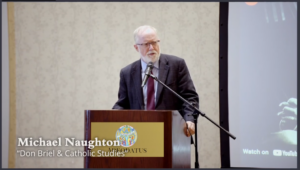Back to School….2024 style

Back to school….Georgia, September 4, 2024.
News item: Four people – two students and two teachers, were killed and nine others hospitalized in a mass shooting at Apalachee High School in Winder, Georgia, on Wednesday, September 4th. This was the 45th school shooting this year in the United States of America. It is difficult not to become numb to these tragic stories.
If this report (and all the previous ones like it) tells us nothing else, it surely is a sign that something is wrong in our schools. No doubt the roots of that ‘something wrong’ are deeper and more widespread than the schools themselves. Yet, in the past 25 years since the mass shooting at Columbine High School in Colorado one would think we would have come to some understanding of what was wrong and made progress in remedying the situation. Understandably, much talk of preventing such outbursts of violence has been prominent. But little light has been shone on the causes. Alas, metal detectors and meditation seminars have not stemmed the episodic slaughter in our schools.
When turning our gaze from the bloodied classrooms and looking at the academic performance in America’s public primary and secondary schools we find widespread concern over the continued decline in the national achievement of proficiency in reading, math, and science among large sectors of our young students. Urgent appeals for more funding for our schools are the frequent response as well as insistence on radical changes to educational paradigms from ‘No Child Left Behind’ to ‘Common Core’. Yet, the overall downward trend is unabated.
While the secular world seems at a loss when accounting for what looks like an educational catastrophe, we believe there is hope to be found in lessons from Western pedagogical traditions and wisdom from our Judeo-Christian heritage. As we noted in our 2021 Fall Appeal, The Cornerstone Forum’s board of directors is committed to bringing the work Gil Bailie has done in synthesizing the Girardian mimetic hypothesis and the Catholic theological tradition into the movement for Catholic/Christian Classical Educational renewal where both hope and real results in improving the moral, spiritual, and intellectual lives of the young are being realized.
One of the early proponents of this movement in US higher education was the late Don Briel. He became a mentor to our board member Alex Lessard whose Adeodatus organization has begun the building out of programs and initiatives that will bear fruit in the lives of schools, scholars, and students in years to come. A current example of this work is the “Canonizing” Tolkien forum to be held in January.
Finally, we encourage you to take the time to view a video from last year’s inaugural Adeodatus conference of Michael Naughton speaking about Don Briel and Catholic Studies in which a quote from Philip Rieff is highlighted and whom Gil Bailie comments on in his remarks below that also address the crisis in education.



The Renunciation of Renunciation
The word that the American sociologist Philip Rieff used for the cultural authority that protects against the corruption of both the conscience and the culture is interdicts, and he faulted what he called the therapeutic assault on all such interdicts. Nonetheless, Rieff had an implicit understanding of the Catholic principle that every No must be in the service of an ever greater Yes–that every interdict exists to protect something indispensable to human fulfillment.
This intuitive understanding is nowhere more in evidence that in Rieff’s remarkable insight into the role that interdicts–especially those dealing with sexual morality–play in spiritual and emotional development. The importance of the following quotation from a posthumously published body of Rieff’s work cannot be overestimated. It brings out the link between the moral and ontological effects of a misshapen conscience.
Here we now see, with startling clarity, how little our established political distinctions between left and right, conservative and radical, revolutionary and reactionary, matter nowadays. Rather, any remaking of political distinctions will have to ask, first, whether there is in fact a discipline of inwardness, a mobilization for fresh renunciations of instinct; or whether there is only the discipline of outwardness, a mobilizing for fresh satisfactions of instinct. Such a distinction will divide contemporary men and movements more accurately; then we shall find fashionable liberals and fascists on the same side, where they really belong.
For millennia, cultures both complex and primitive have understood how indispensable it is to constrain and channel sexual ardor with a view to protecting the mystery of nuptiality and ensure that children are raised by their mother and father–the arrangement most conducive to the healthy development of the young. Not only did Rieff recognized this; he saw what a terrible thing we are doing to our society and to our children under the current regime of public education, infected as it is with an incessant bombardment of the young with messages scripted by the sexual revolutionaries. This, Rieff insisted, amounts to the therapeutic “renunciation of renunciation,” and it is profoundly destructive of the inwardness that is key to personal integrity and the interpersonal intimacy so essential to human happiness and one’s spiritual life.




